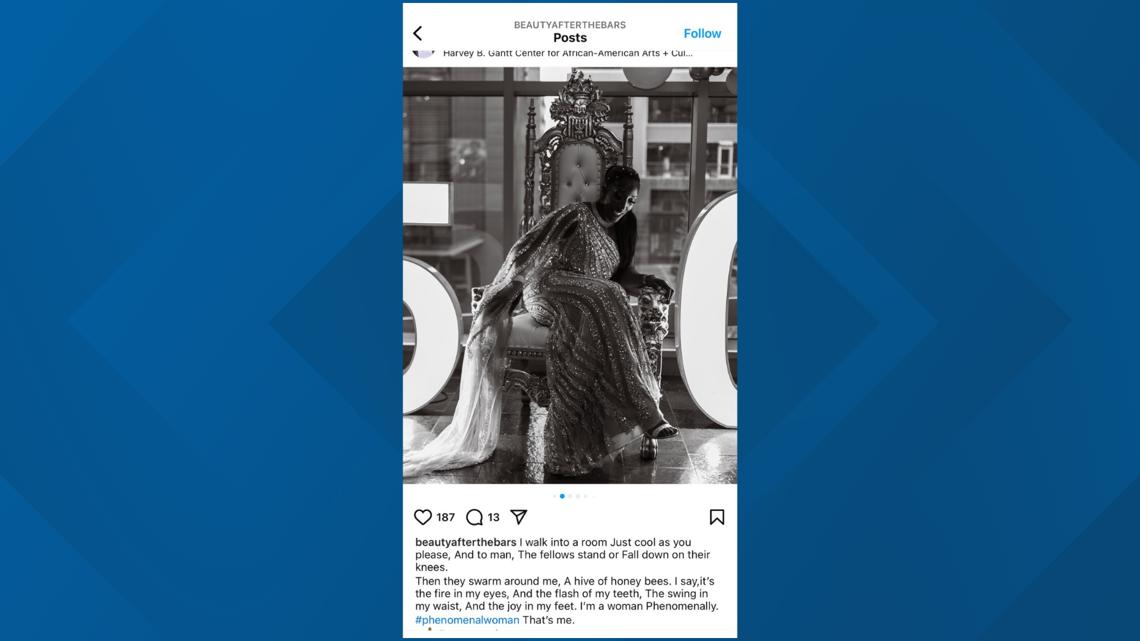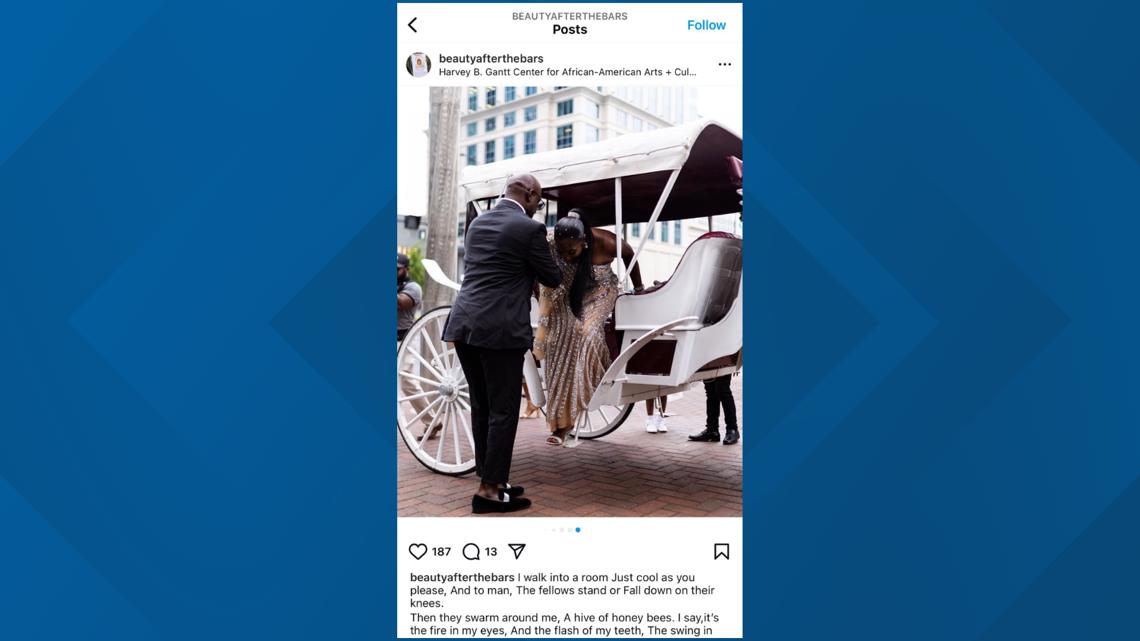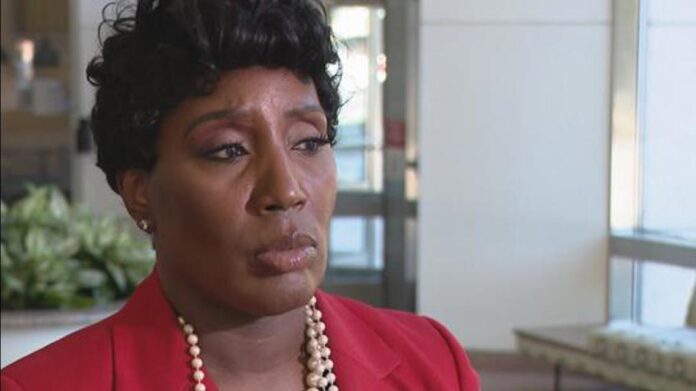Brown told WCNC Charlotte she has no intention of resigning and plans on fighting the charges, claiming she is innocent.
CHARLOTTE, N.C. — Charlotte City Council member Tiawana Brown and her two daughters were indicted Thursday on federal charges for allegedly defrauding COVID-19 relief programs to obtain more than $124,000 in pandemic aid.
According to a release provided by the Department of Justice, Brown and her two daughters are charged with conspiracy to commit wire fraud and wire fraud. WCNC Charlotte confirmed one of those loans, more than $20,000, was forgiven through the Paycheck Protection Program for a business Brown said she owned.
Brown released a statement Thursday morning, saying the alleged events happened years ago and have nothing to do with her time on city council. She called it a “deliberate effort” to interfere with her reelection. Brown served four years in federal prison for a felony fraud conviction in the 1990s.
“It’s an effort to distract from the work I’ve done, the lives I’ve touched and the community I represent,” Brown said. “My commitment to justice, to equity and second chances remains unshaken. I trust the legal process and I remain focused on what matters the most to people.”
The indictment claims the group filed at least 15 fraudulent loan applications between April 2020 and September 2021, using fake tax forms and false documentation. Federal prosecutors say, while some of the loan applications were rejected, Brown used money from others that were approved for personal spending, including “purchases of Louis Vuitton merchandise.”
Indictment outlines lavish birthday bash
The indictment also says, roughly a month after receiving the loan, Brown spent $15,000 on a birthday party for herself, complete with a rose wall, a rented throne and a horse-drawn carriage.
Prosecutors allege Brown used the bank account for her nonprofit Beauty After The Bars for this party. The indictment claims the party expenses included approximately $3,500 for a venue, $5,000 in catering and $2,300 for photography and video services, a balloon arch, a rose wall, a rented throne and the horse-drawn carriage.
The nonprofit posted multiple photos from the celebration on Instagram.




Brown’s attorney Rob Heroy declined to answer specifics about the birthday party that were outlined in the indictment, saying it’s “not time to try the case.”
‘I paid it back’: Brown claims she paid back $20K
Brown admitted to paying back $20,833, claiming that’s all she was responsible for. She told reporters that the loan was paid back “a few months ago,” saying she got the loan because she was starting a new clothing and swimwear business. A Facebook page for the business shows it was created on Nov. 24, 2020.
“Nobody had to tell me to pay it back,” Brown declared. “When I found out there may have been some scrutiny with the application, I paid it back.”
When pressed about the $124,000 figure provided by prosecutors, Brown reiterated her claim she paid back what she owed. Brown compared her situation to a recent case in Gaston County. Bobby Gerald Duncan, the owner of Hillbilly’s Barbeque and Steaks, agreed to pay over $1.5 million over alleged COVID-19 fraud. Brown questioned why Duncan was allowed to reach a settlement in civil court instead of facing a criminal indictment.
Brown said she has no intention of resigning and plans on fighting the charges, claiming she’s innocent.
“I want to be clear: These allegations concern actions that took place before I took office,” Brown said. “I have always been transparent about my past and have worked tirelessly to serve my community with integrity and dedication. I am committed to continuing my work for the residents of District 3. I trust in the legal process and am confident that the truth will come to light.”
A review of federal PPP data reveals Brown and her daughters applied for their PPP loans around the same time in the spring of 2021. Records show their applications were oddly alike.
According to PPP data, each used the same Charlotte address in their applications, each (as sole proprietors) received the maximum PPP amount in the first round and Brown’s daughters secured the exact same amounts again after applying for secondary loans. Each said they used the money for payroll and listed the same gross incomes for their reported businesses, according to PPP and court records.
Brown said her daughters have no comment about the situation.
“They don’t have anything to say,” she told WCNC Charlotte.
U.S. attorney: Feds generally pursue charges for ‘classic’ fraud
Newly sworn-in U.S. Attorney for the Western District of North Carolina Russ Ferguson said he inherited this case when he took over in March. On WFAE’s Charlotte Talks Thursday morning, Ferguson said prosecutors have secured 35 COVID-19 relief fraud convictions in recent years. He said, generally, the criminal cases they pursue are “classic” fraud.
“In all of the criminal cases we’ve had, I don’t believe it’s a case where someone didn’t know,” Ferguson told WFAE’s Mike Collins. “It is classic fraud. It’s creating fake documents, lying on applications, signing under penalty of perjury that things are true, making companies that don’t exist to get the loan. It’s classic fraud.”
He added, in cases where people made mistakes on their PPP applications or unknowingly broke the rules, federal prosecutors generally work to get the money back, but don’t try to send them to prison. That’s not the approach they’re taking in this case. In court records, they’ve suggested Brown and her daughters knew exactly what they were doing.
The city of Charlotte issued the following statement in response to the allegations:
“By Ms. Brown’s own statement, any alleged activities predate her involvement with Charlotte City Council. Furthermore, the city has not been contacted by the US Attorney’s Office, Department of Justice, Federal Bureau of Investigation and the City of Charlotte is not being investigated pertaining to this or her role as a council member. Any questions about this issue should be directed to Ms. Brown or her personal attorney.”
The city also stated that Brown’s nonprofit didn’t receive any money from Charlotte during the pandemic.
“Beauty After The Bars was not a funding recipient in either of the city’s federally funded pandemic non-profit support grant programs. Specifically, we awarded $2M of CARES funds to non-profits in 2020, and awarded $2.5M of ARPA funds in 2023. The city did not provide COVID relief funds directly to households, with the exception of a rental/utility assistance program (RAMP-CLT) that was administered by a third-party (DreamKey) on our behalf (i.e., we did not review the applications or make the household eligibility/funding decisions).”
Contact Nate Morabito at nmorabito@wcnc.com and follow him on Facebook, X and Instagram.



